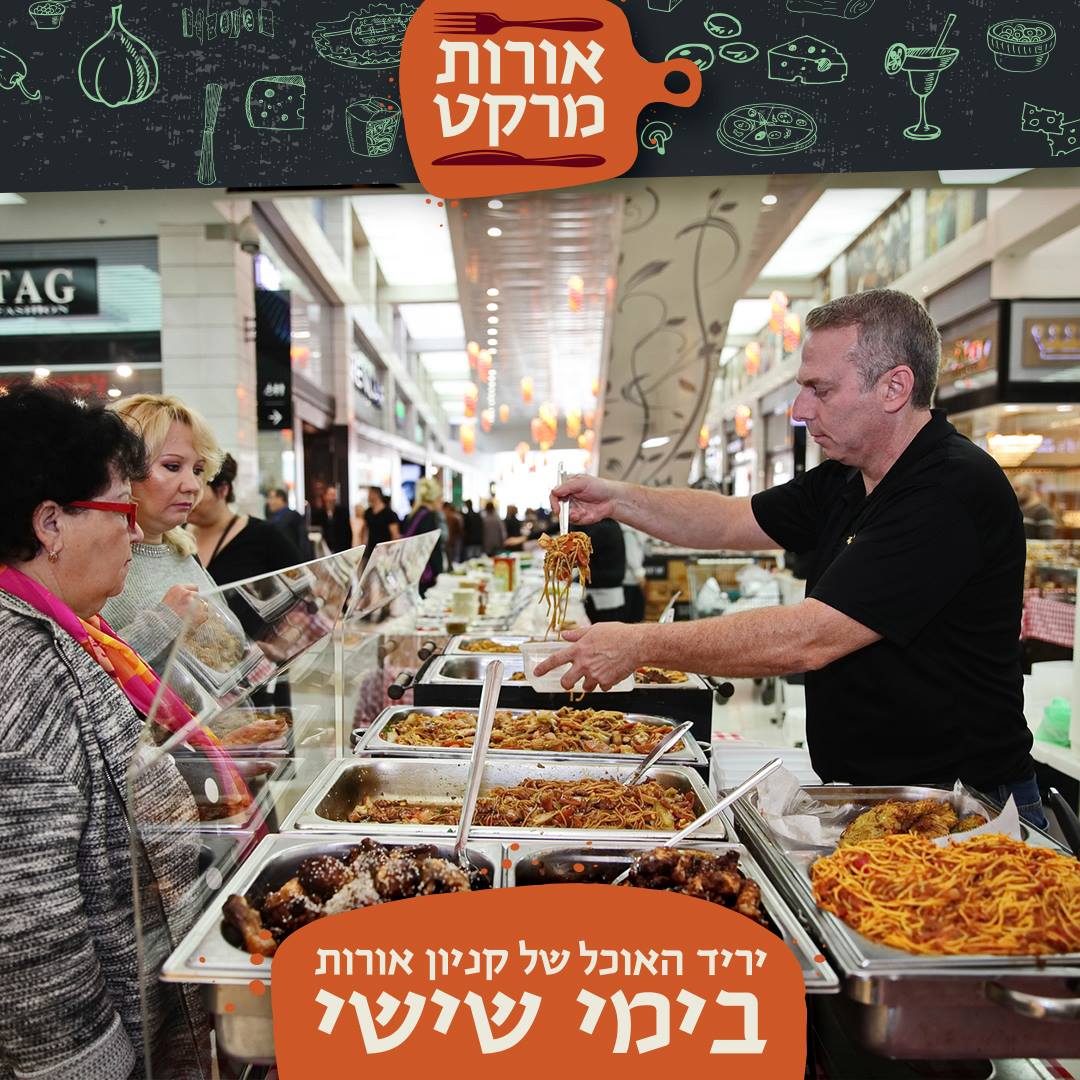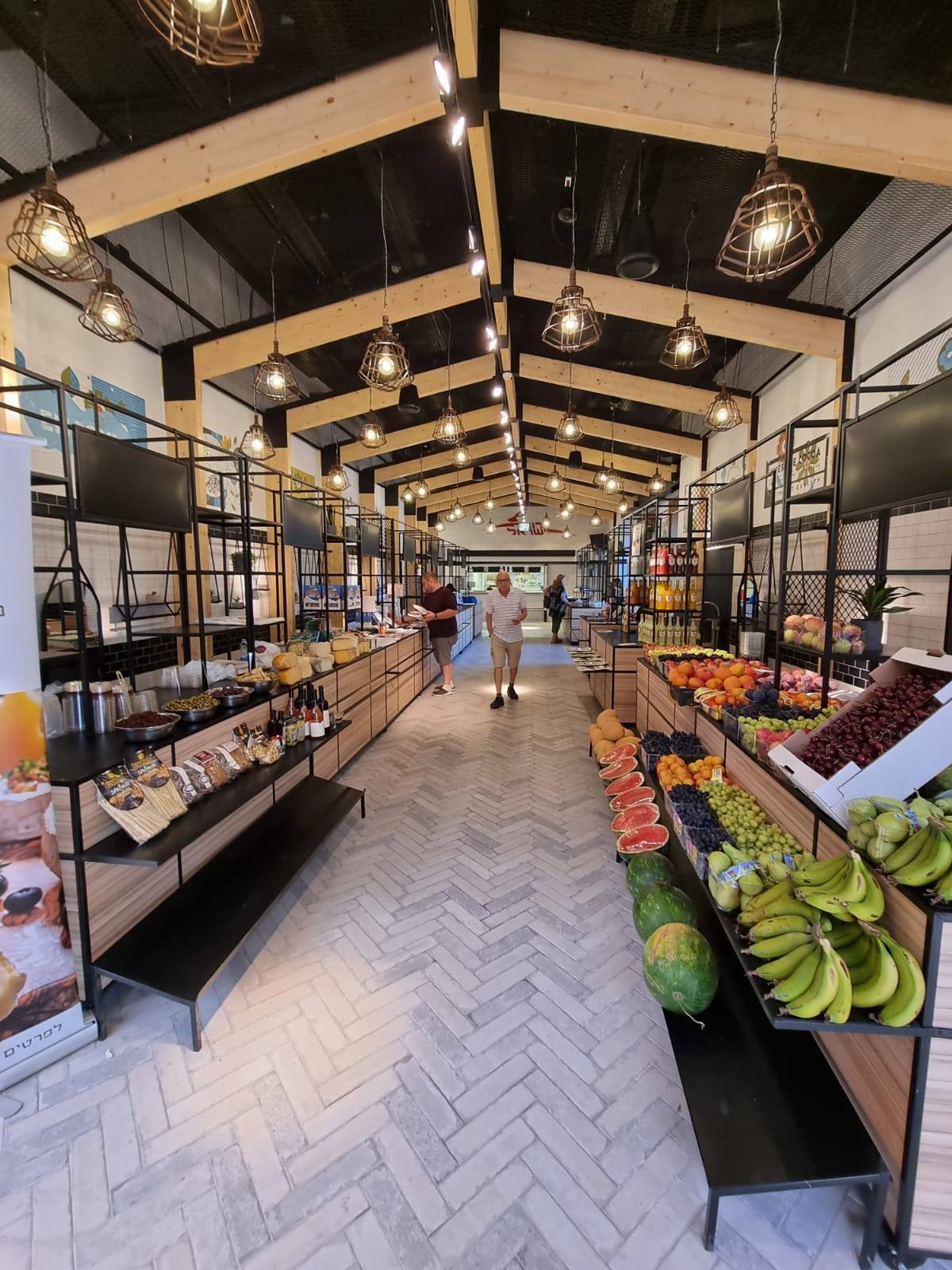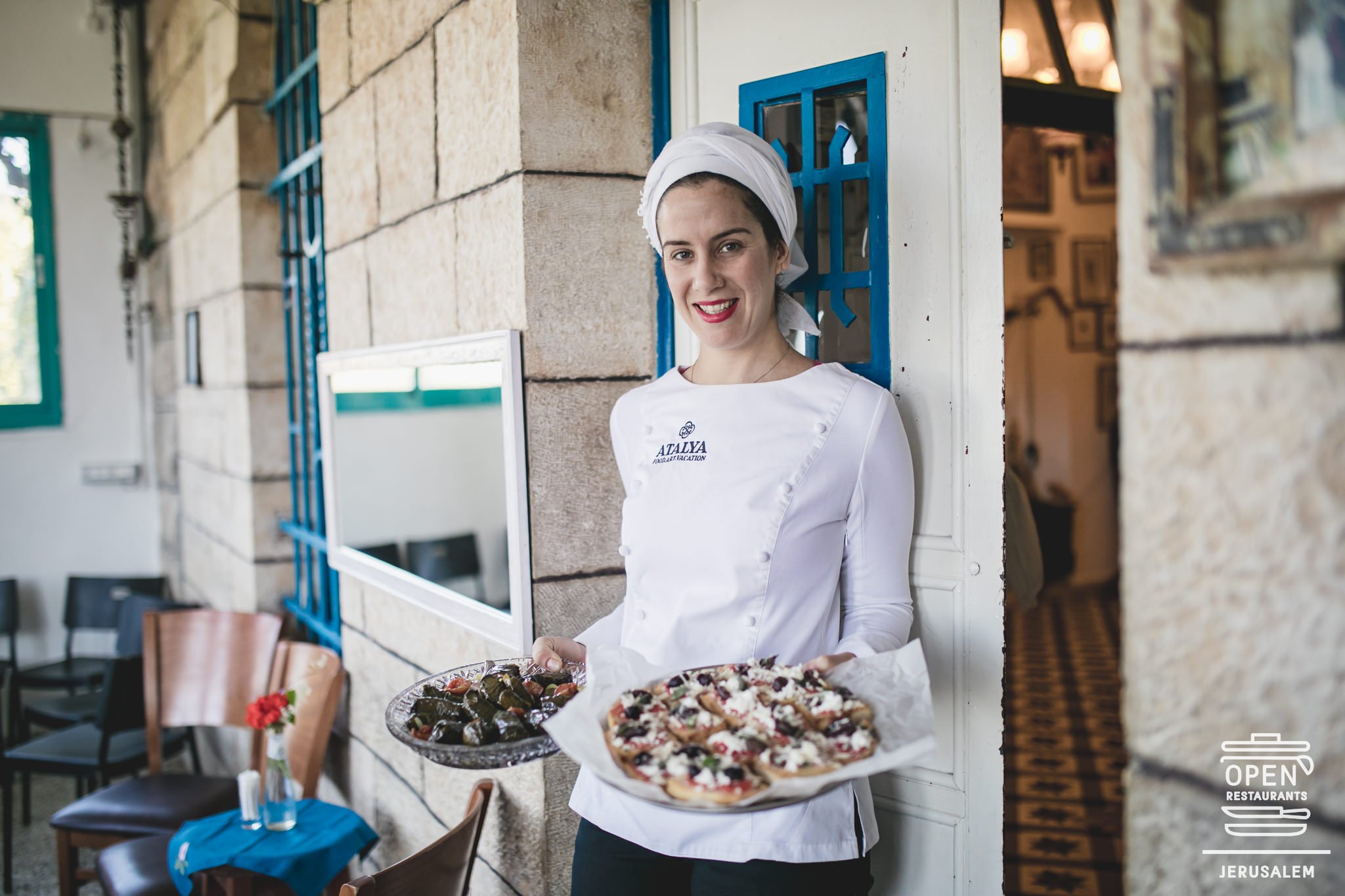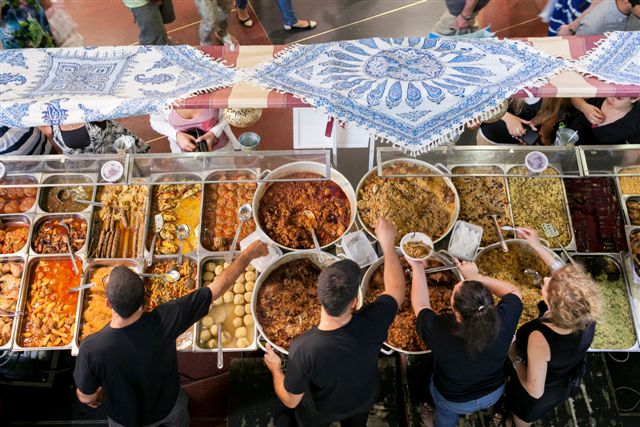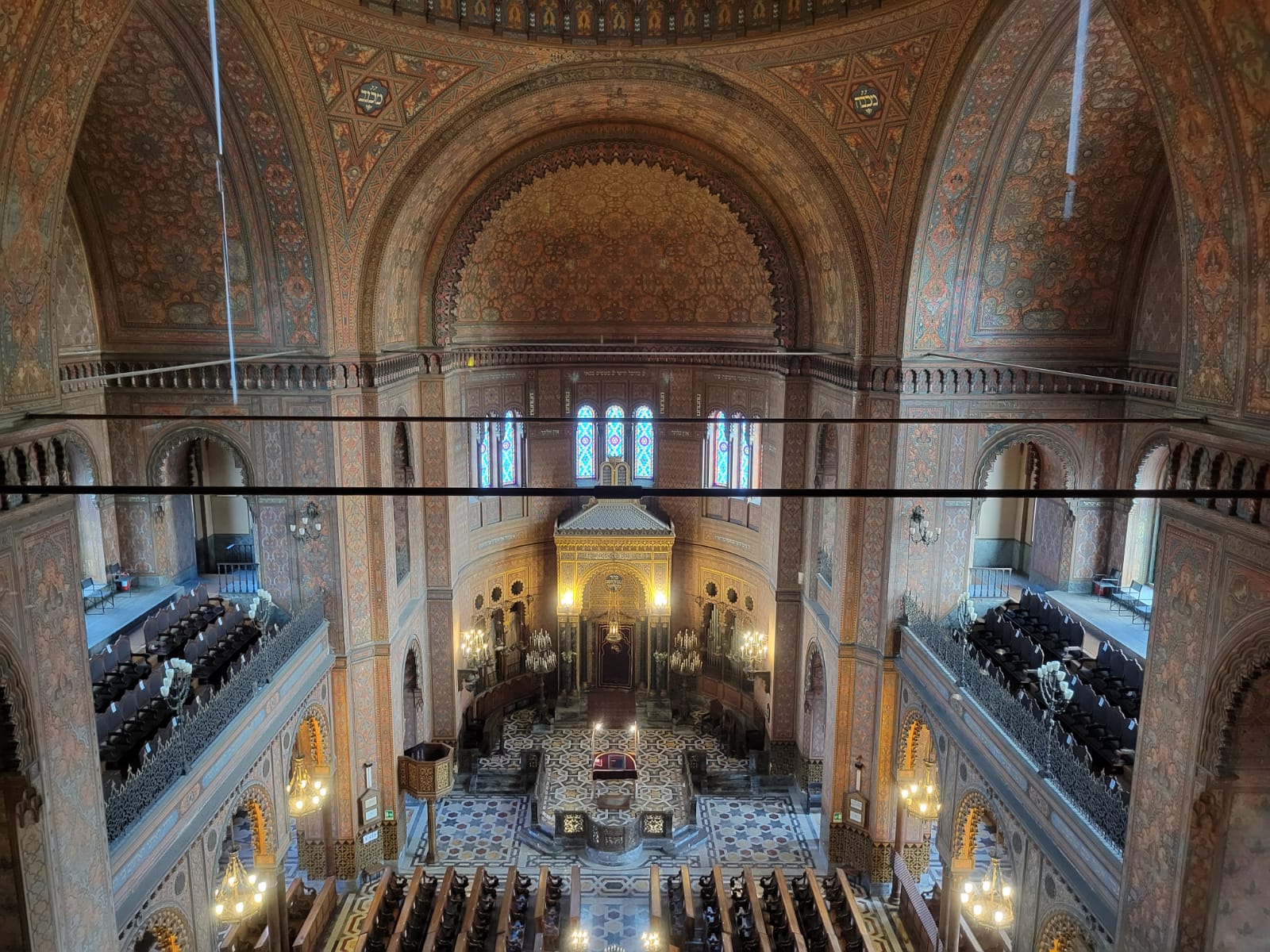For more than ten years, this weekly fair has been taking place at the Orot Mall, with more than thirty food stalls to satisfy passersby. The freshly baked breads topped with homemade spreads and artisan cheeses can win anyone over. Enjoy salads, Chinese food, baclava, cookies, and other delights.
Archives: Directory listings
Directory listings
Haifa Food Fair
The Farmers Market takes place every Friday between the hours of 08:00-15:00 in Azrieli Mall in Haifa. . There is a variety of food stalls which include the produce from the best farmers, cheese-makers and bakers. In this market you are guaranteed to find a wide selection of the freshest vegetables, fruits, herbs, cheese, breads and olive oils as well as a large assortment of tasty homemade products.
Open Restaurants
During the OpenRestaurants™ events, many of Jerusalem’s finest restaurants will open their kitchens for special workshops and dinners, among them Mona, Adom, and Kadosh. Along with the rare and unique opportunity to enter behind the proverbial curtains of this exclusive culinary society, the festival presents a variety of one-off events that range from gastronomy to history and everything in between – art, design, music, tech & innovation and naturally the passionate consumption of all culinary aspects – events that emerge from the kitchens and encompass every corner the city. Chefs, artisans, multidisciplinary artists, performers, intellectuals and local culinary personalities – all will take part in our riveting culinary journey in order to lead us to new and fascinating adventure.
Ha’ochel Ha’kafri Festival
Just a short drive from the center of the country, this rural festival takes place in an area abundant with beautiful views and nature- Mate Yehuda. This exceptional festival has a different vibe from typical food fairs, as local cooks open their homes and hearts to serve traditional dishes from many cultures. The personal and unique adventure of eating at a host family’s home, makes the experience that much more authentic and enjoyable, and is something unobtainable in any store or restaurant. This area of the country has a diverse population, which is reflected in this fascinating and flavorful culinary event.
Sommelier Wine Festival
Although wine festivals have taken the country by storm, few can compare to Tel Aviv’s Sommelier Wine Festival. This event features wine from all over the world, of course highlighting specialties from our Israeli wineries such as those in the Golan Heights. Although originally more of an industry exposition created to appeal to restaurants, critics, wine buyers, etc., this affair gives the public a chance to taste some special, and often unreleased wines. There are more than fifty Israeli wineries at this trade show, offering samples of their highest quality wines. Some specialties include Israeli ice wines and orange wines.
EAT Tel Aviv Festival
Eat Tel Aviv is the only food festival that brings together all of the city’s best chefs to one place, with the most amazing dishes in the country. For six days, Charles Clore Park is transformed into a festive market venue with live music, celebrity chefs, colorful food trucks, and innovative food stands. Participating in the festival are some of the best restaurants in Tel Aviv (including Manta Ray, Dixie, Captain Carrie and more) and some of the finest and most famous chefs in Israel chefs (Haim Cohen, Shaul Ben Aderet, Yonatan Roshfeld, David Frenkel, Ronen Skinzis and more). You can expect tastings and delicious street food to try and take away.
Date is subject to change. Please see the official website for the most up-to-date information.
Dizengoff Food Fair
A convergence of cultures from around the world, the Dizengoff Food Fair offers a taste of everything. Every Thursday and Friday present the opportunity to expand your culinary horizons. Allow the enticing aromas of the stalls to guide you through the maze that is Dizengoff Center. This fair offers something for everyone, much like Israel, from children to the elderly, and sit-down snacks to takeaway weekend meals. For those who do not have the time to visit the seemingly endless array of culinary delights across the country, this fair provides an opportunity to taste a bit everything, from Druze food to Italian cuisine.
The Jewish Story of Tbilisi, Georgia
Tbilisi, located in the eastern part of Georgia, at the both banks of the river Mtkvari, is the capital and the largest city of the country. It was Founded in the V century AD by Vakhtang I Gorgasali. The city is a place where the First Congress of Caucasus Zionists took place. Tbilisi’s population reaches over 1.125 million, out of which, 10,000 are Jewish inhabitants.
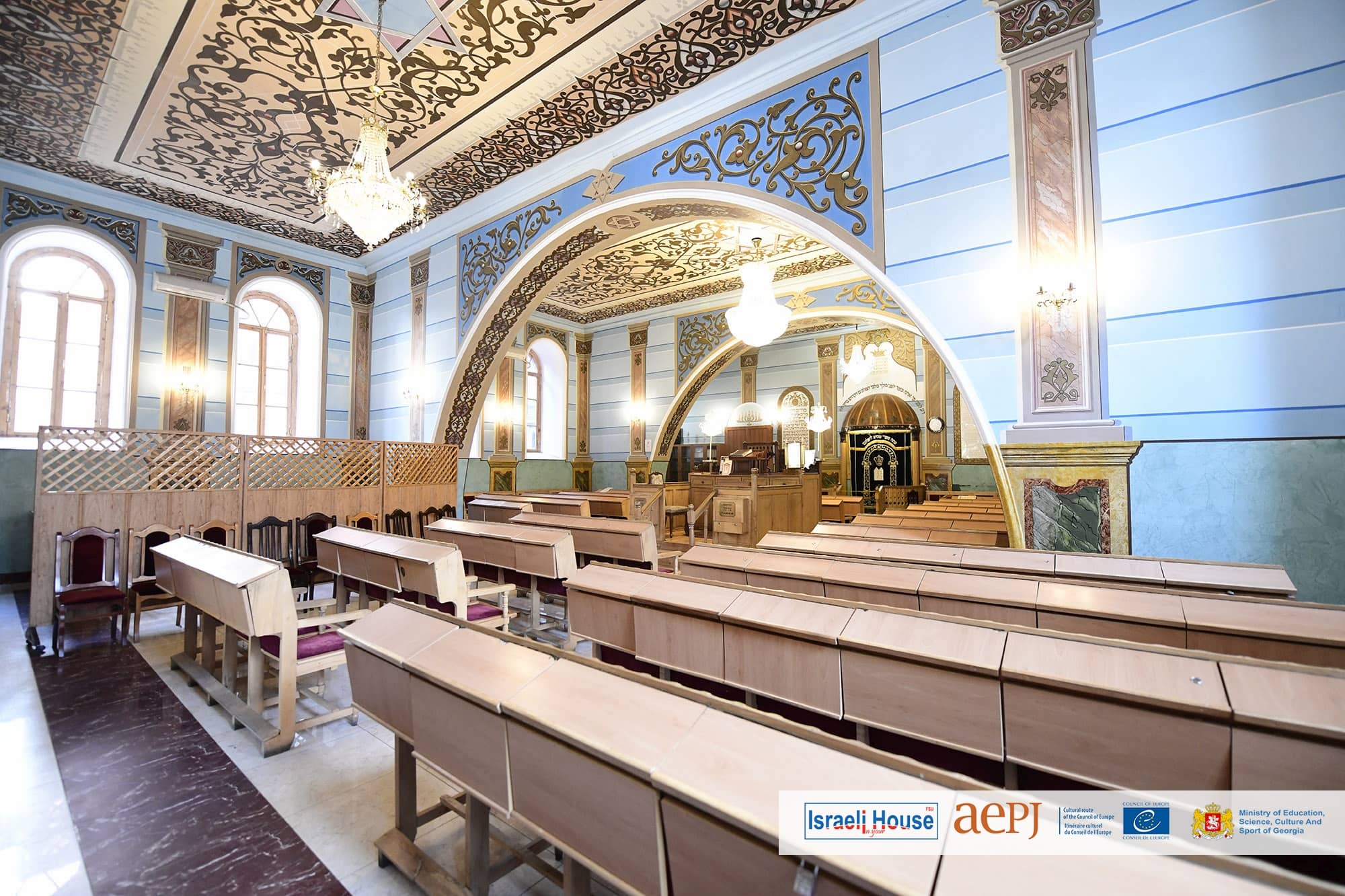
According to “Uriatubani” and “Fetkhaini”, it is assumed that Jewish are one of the earliest residents of Georgia, settling in the country 26 centuries ago. Tbilisi Jews first appear in transcripts made during the ruling of David the Builder. According to Tbilisi’s statistics in 1825, there were 58 Jews in Georgia; this number grew to 3000 by the year of 1901.
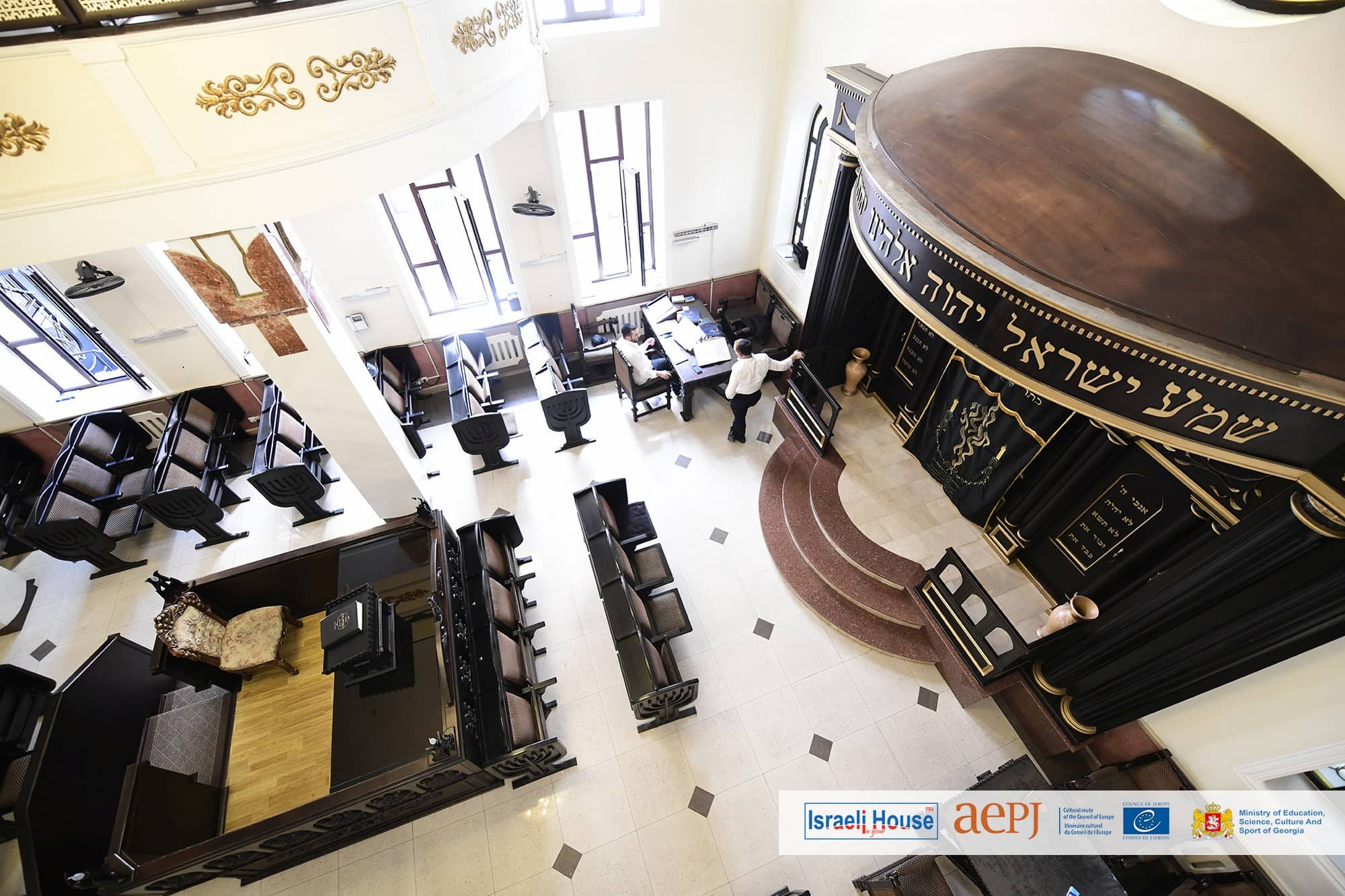
In the XIX century Russian-Jew military joined Jewish community in Georgia. The day before the Second World War, there were 40000 Jews in Tbilisi, in some sources, it is said that there were fifteen synagogues in the city before the first world war. After the Second World War there were three parties: Ashkenazi Jews, who came to the city from Russia; Spars Jews; and local Jews.
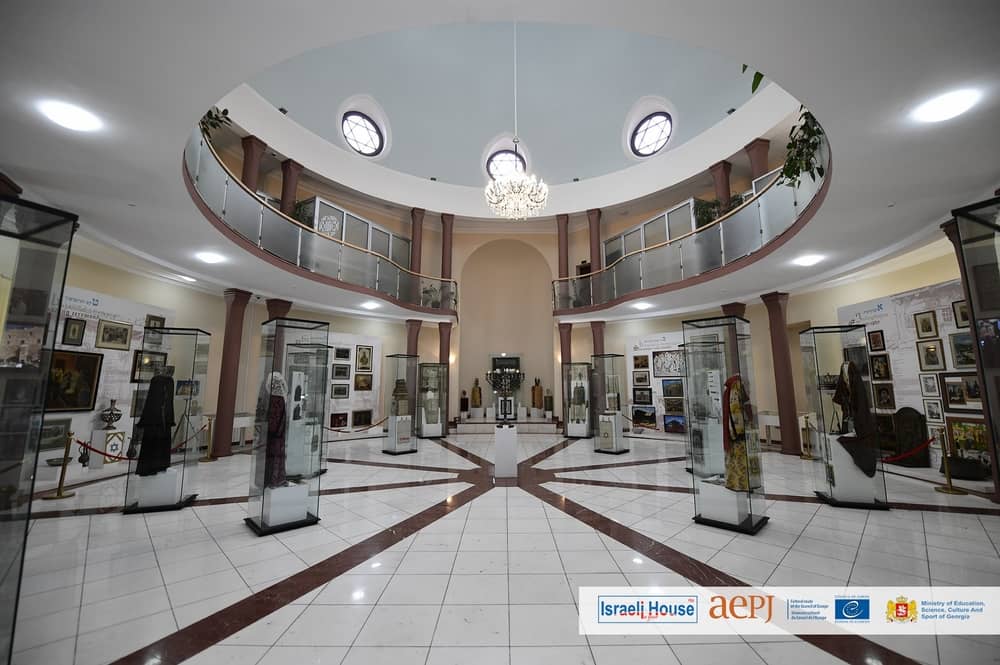
After the war Ashkenazi Jews demanded to get back their community, which was a synagogue on Ivanidze St., but their request was denied. After the Jewish museum was closed, in 1952, the government redesigned the part of the building into an apartment complex, while part of it was made to be a workshop.
The Jewish Story of Izmir, Turkey
Evidence of Jewish life in Izmir dates back to Hellenistic and Roman times. Regional archeological findings point to a thriving Jewish community in this coastal city, then known as Smyrna. While this Romaniot community seems to have enjoyed considerable importance in antiquity, its presence started declining in the late Byzantine period, as Jews got settled in surrounding towns, rather than Izmir itself. It appears that in the year 1424, when the Ottomans conquered the, by then, small and relatively unimportant town, Izmir no longer had an organized Jewish community.
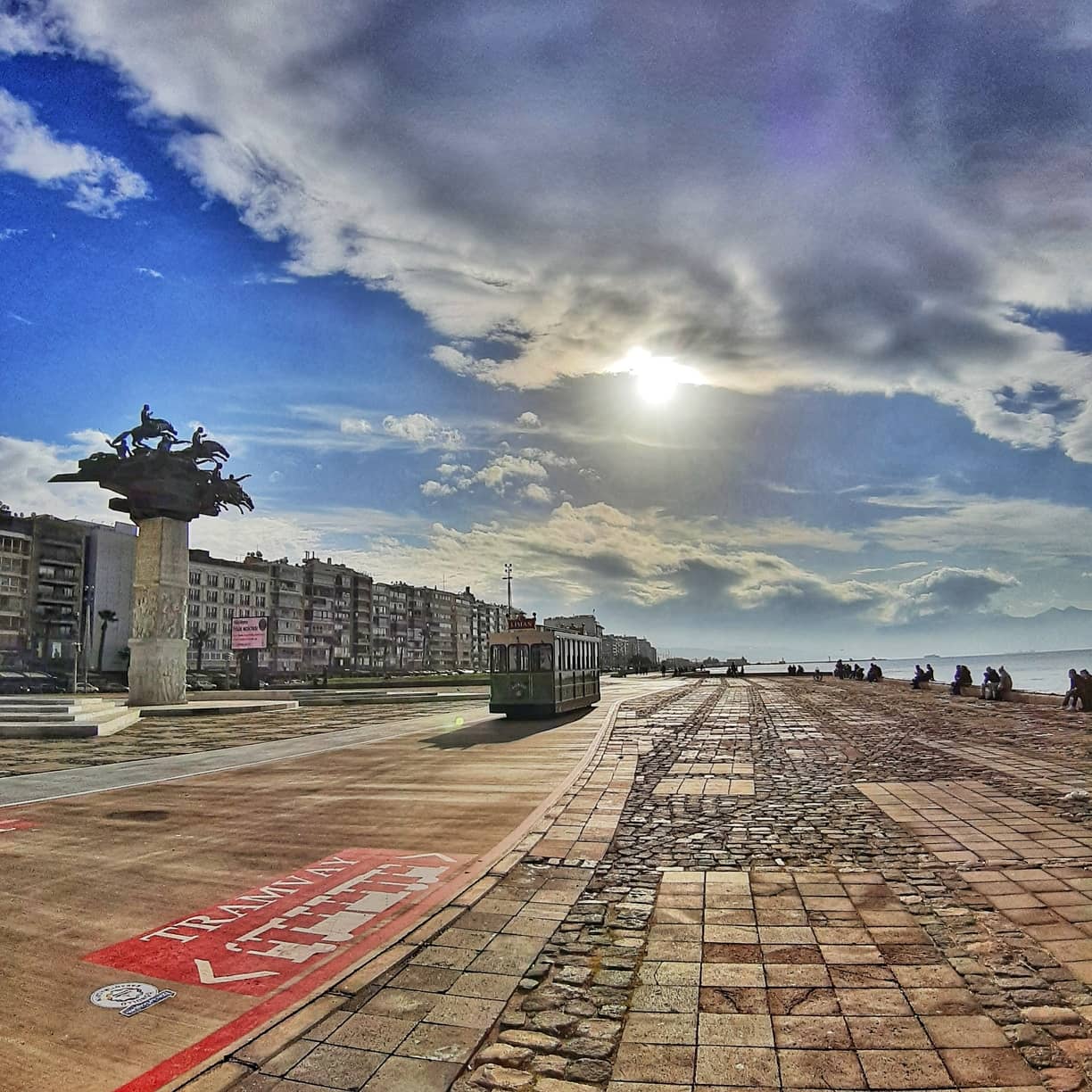
The expulsion of the Jews from Spain (1492) and Portugal (1497), however, opened a new page in the history of Ottoman Jewry. Thousands of exiled Jews settled throughout the Empire, where they made considerable contributions to local trade and economies. In different time periods, including Ottoman Empire and Republic of Turkey, some Ashkenazi groups from various countries also settled in the city, but the population superiority was always kept by the Sephardi.
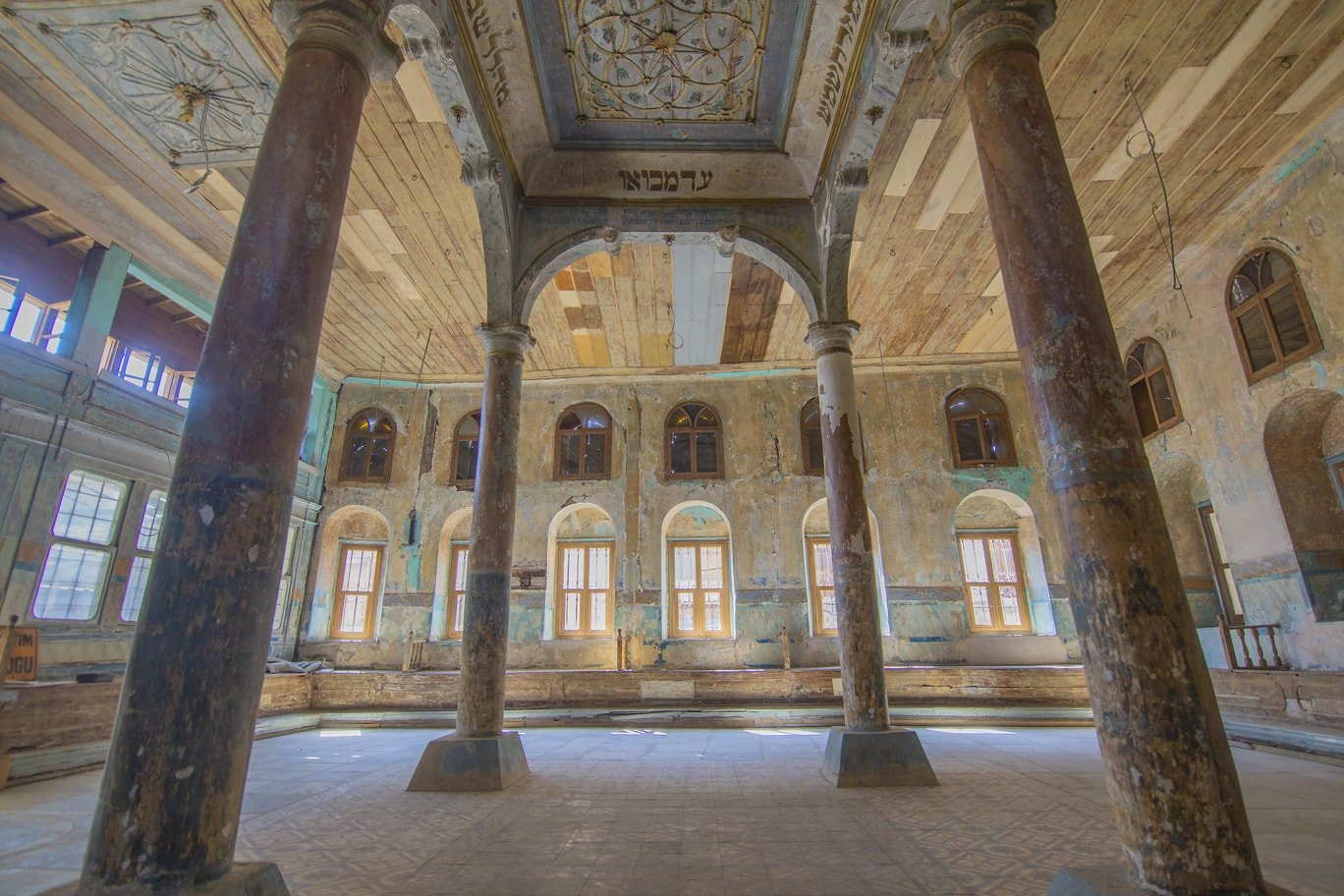
The resettlement of Jews to Izmir and the reestablishment of the community took place by the end of 16th century and the beginning of the 17th century. This period coincides with the time of the extraordinary economic growth of the city; when the port of Izmir began to develop into the most important trading center in the Levant.
The region reserved for Jews according to the settlement order of the Ottoman Empire, was neighboring the Turkish quarter together with the harbor and bazaar area. Taking the advantage of this location many Jews started to find commerce related jobs like translator, trader etc. Known as the “Juderia” (later to be named as the “First Juderia”), this region consisted of a group of neighborhoods whose names and numbers changed over time. Daily life structures such as houses, workplaces, places of worship, schools and hospitals were built in this region, in which the Jewish community lived for several centuries.
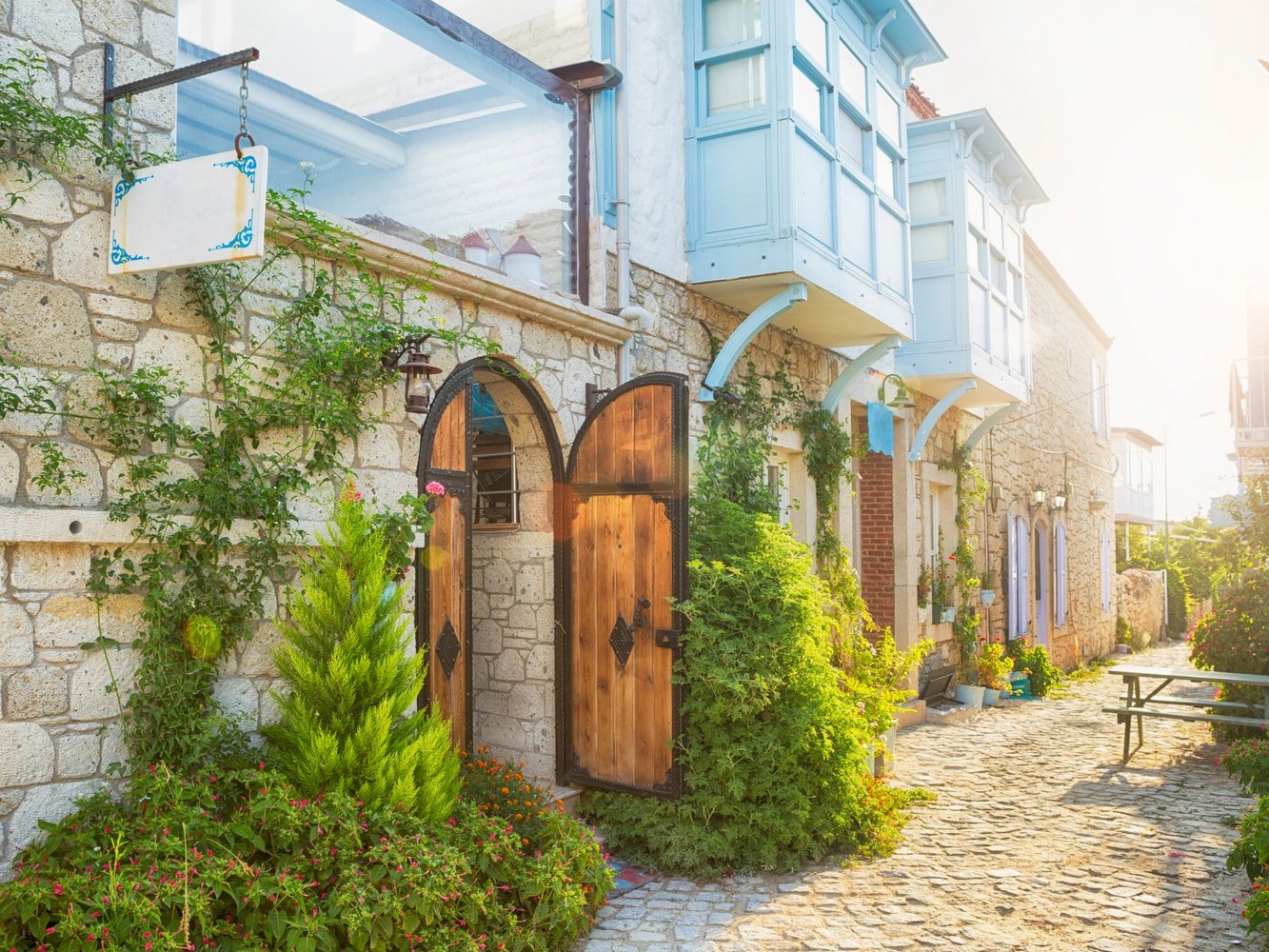
By the middle of the 17th century, the Jewish community numbered in the thousands, and displayed a large degree of heterogeneity. As the waves of Jewish immigration to Izmir during the 17th century came from several different sources (within and outside the Ottoman Empire), the community organized in several synagogues, had their own leadership and institutions, and maintained contact with other Jewish communities.
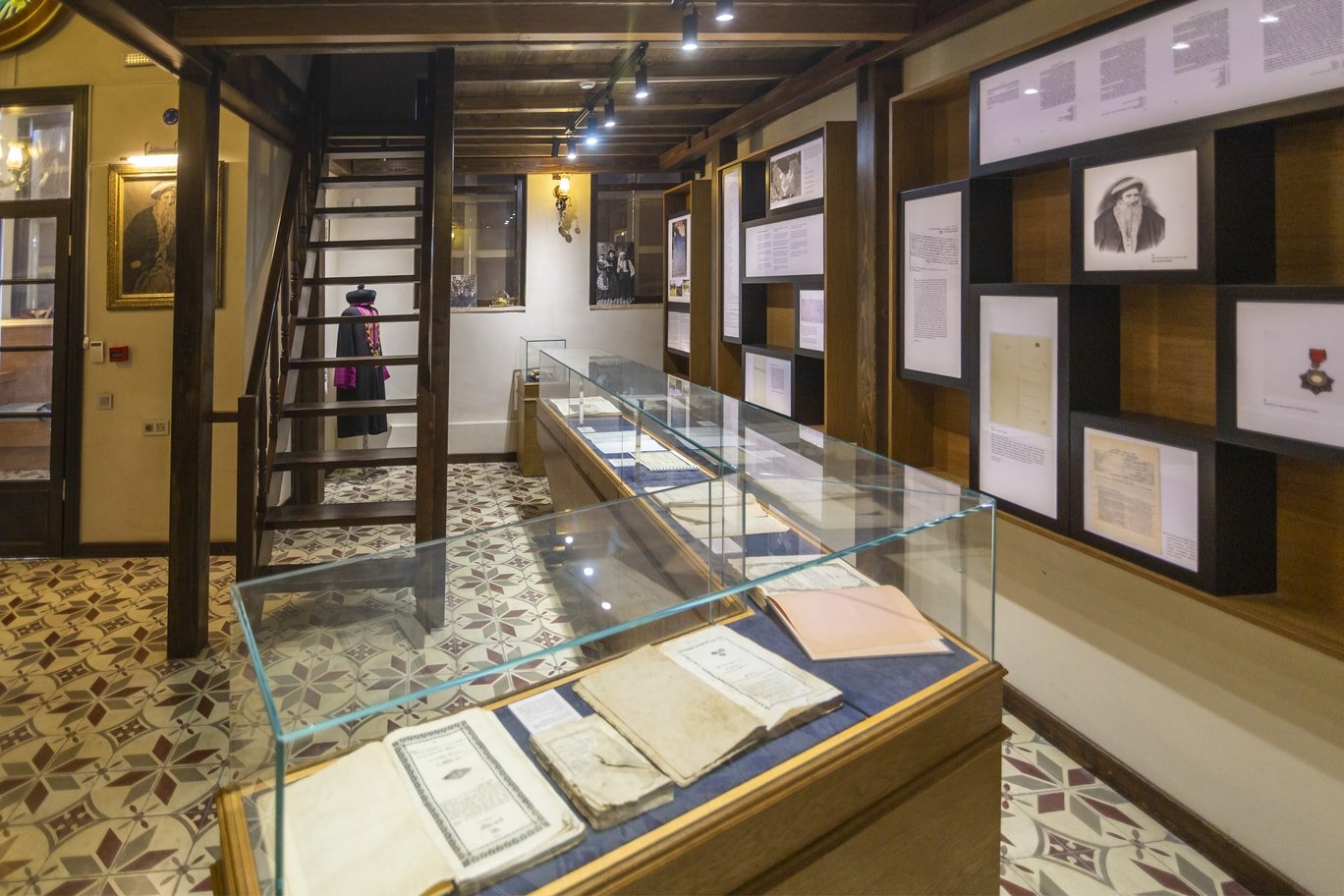
Born in Izmir in 1626, Shabbetai Zvi and his Sabbatean movement left a deep mark on the history of Izmir’s Jewish community. Indeed, Zvi’s messianism movement reverberated throughout the entire Jewish world, and some consider it to have represented an existential threat to Judaism in the 17th century.
The later Ottoman period in Izmir was characterized by the growth of the Jewish population and the maturing of religious and secular intellectual life, evidenced by important spiritual leaders like Rav. Hayim Palachi, as well as the great number of the Jewish newspapers and secular literature from this period.
Starting from the second half of the 19th century, the westward spread of the urban settlement attracted the attention of the Greeks and the Muslims, as well as the Jews.
Thus, the adventure of the “Second Juderia”, i.e., the new Jewish quarter which was formed in this new part of Izmir lasted only for about a century. The wealthier or more educated members of the community moved to this neighborhood first. Structures required by daily life were built, activities required by community life were organized, but most differently and importantly, in this new settlement area the neighborhoods became multicultural and multi-religious.
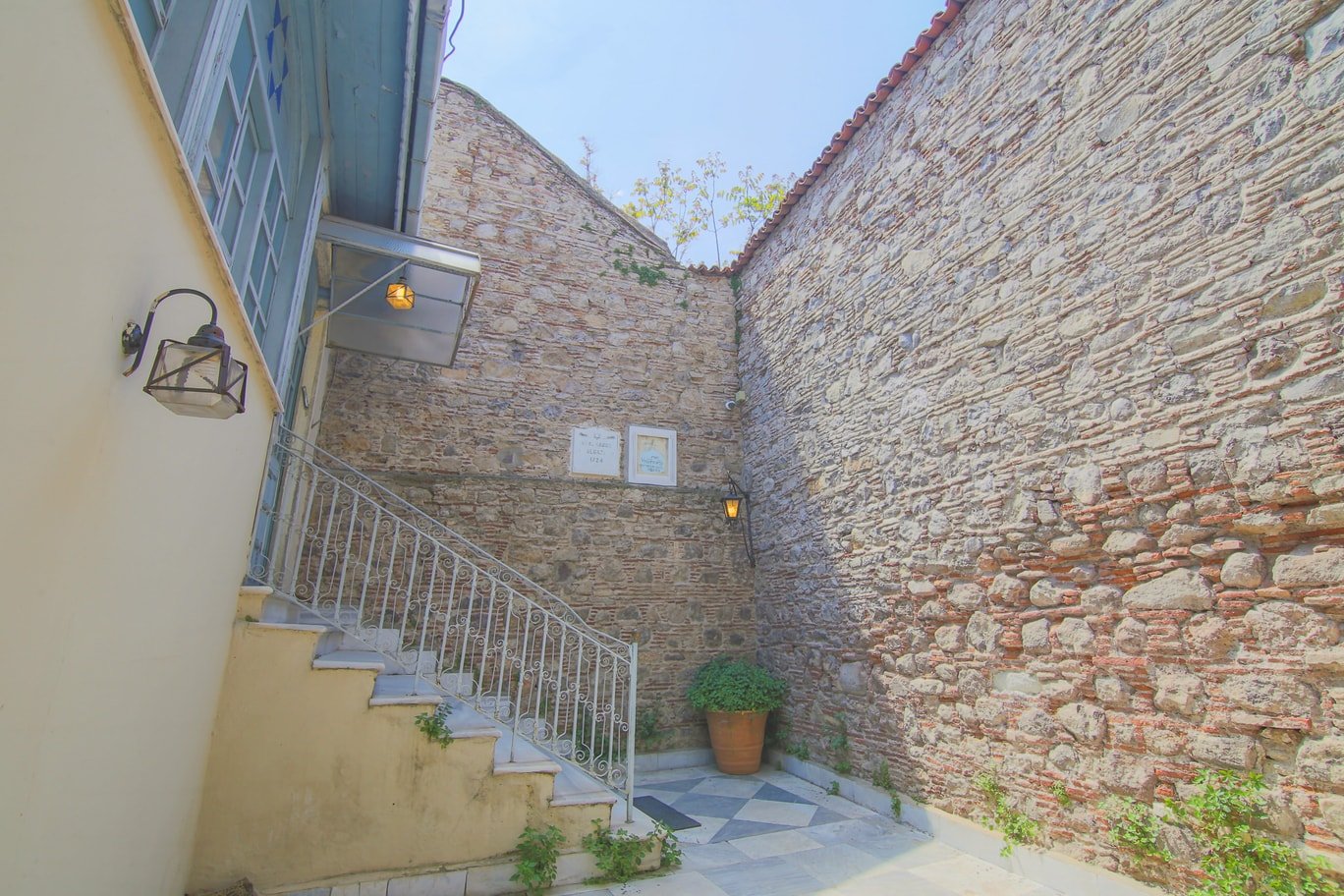
By the last quarter of the 19th century and the first half of the 20th century, due to regional and World wars, the Jewish community of Izmir faced a lot of emigration traffic, both inbound (mainly from Central and Eastern Europe) and outbound (mainly to Europe and the Americas). Finally, the establishment of the State of Israel, also created a big immigration wave. Ever since, the community continued to diminish gradually due to economic and political reasons, as well as issues like low growth of population, inter-marriages, youngsters moving out for education / job opportunities, etc.
As another result of the settlement movement, the structure of both neighborhoods changed. By the 1950s, the number of inhabitants of the “First Juderia ” dwindled considerably, and later to be abandoned completely. Those who did not go abroad from the “Second Juderia” began to move to the Alsancak region, which they considered as a more upscale area.
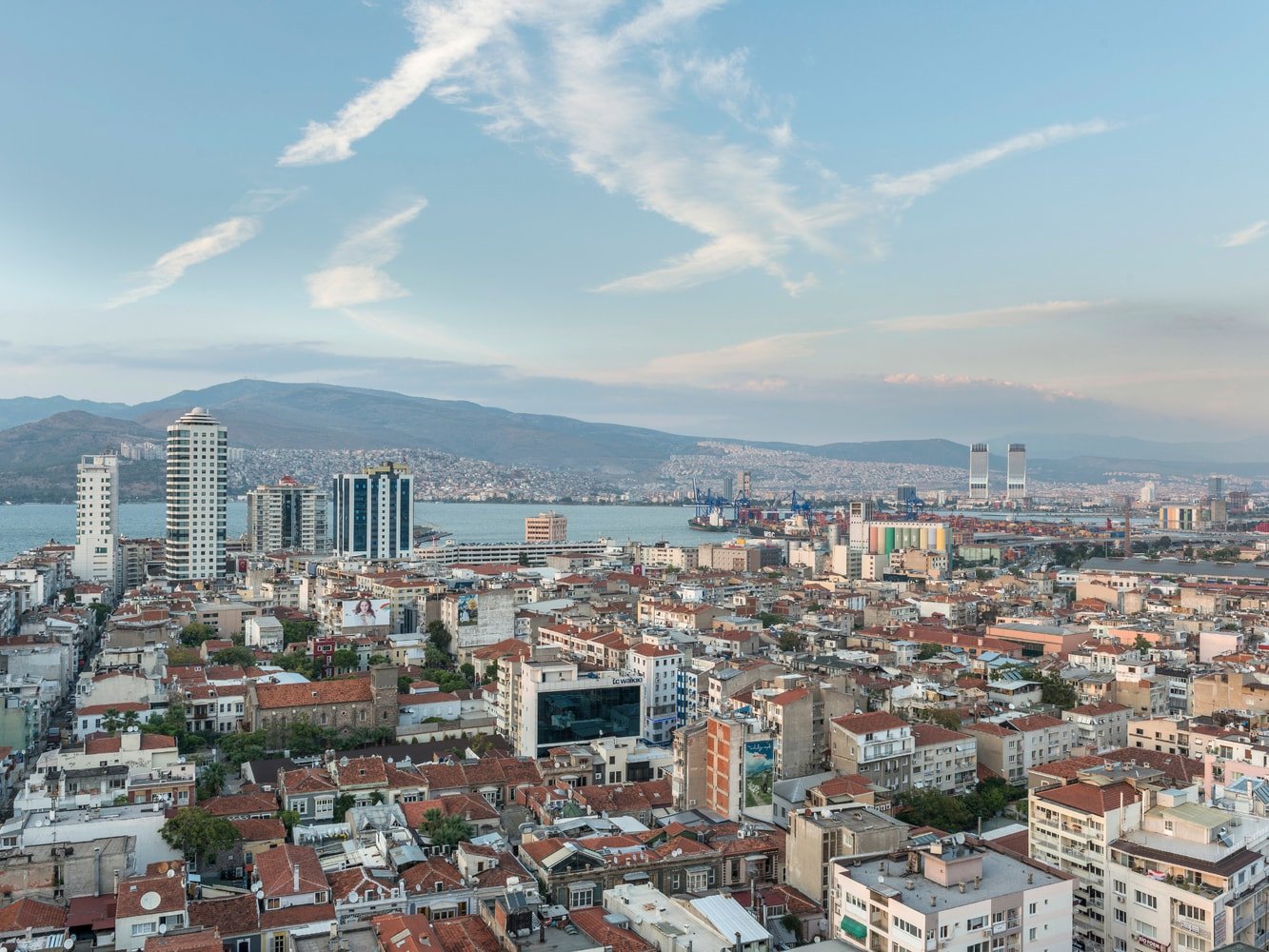
Out of many magnificent synagogues built in previous centuries in Izmir, only a few survived for centuries due through disasters like earthquakes, fires, etc and declining population. The remaining synagogues, some preserved and some in ruins, together with the cortejos, the cemeteries, and an elevator tower, constitute a living testimony to community’s life in Izmir, which was one of the most spectacular of its kind and had the most spiritual and cultural influence on all Jewish diaspora communities in the 17th and 18th centuries.
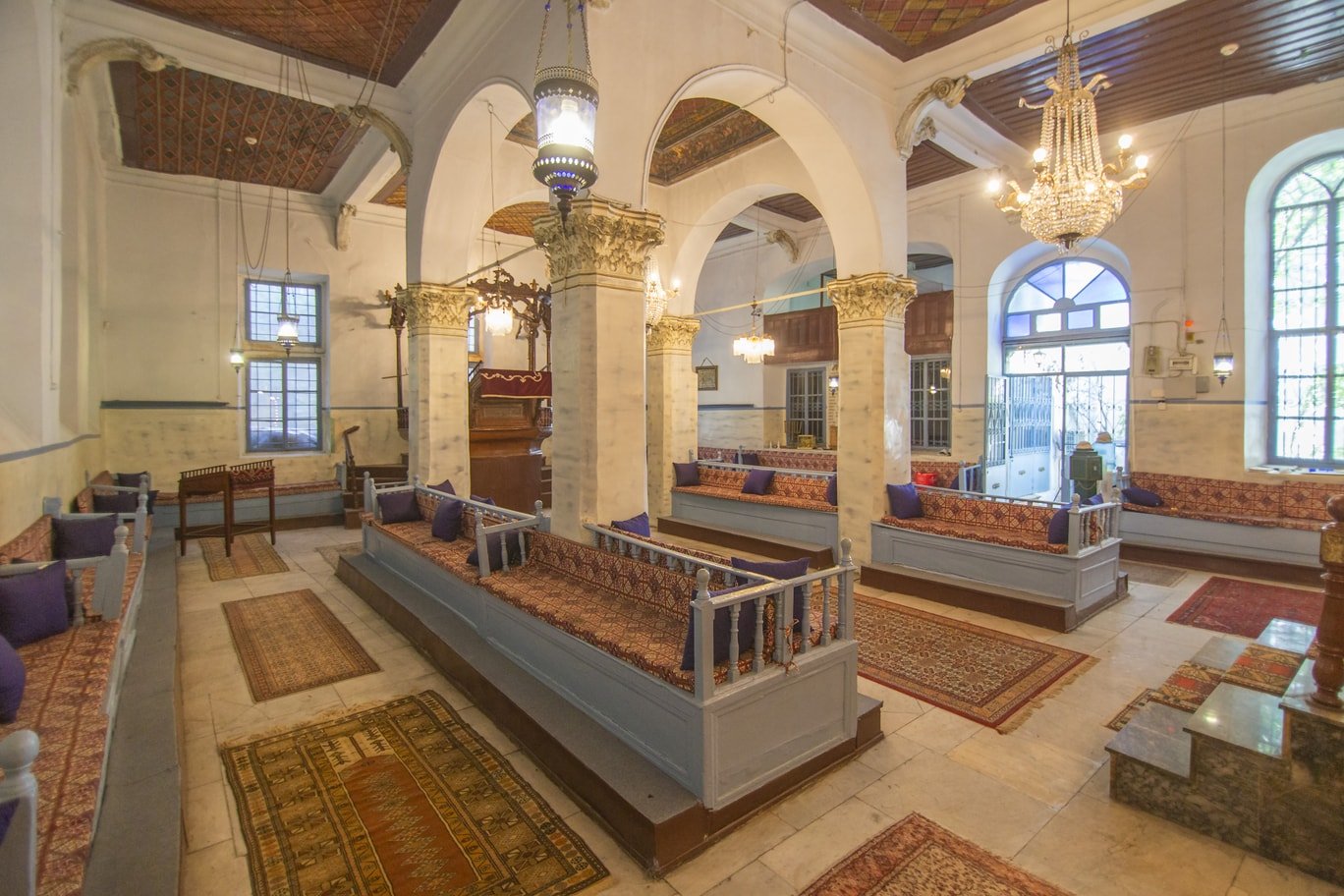
The tangible cultural heritage examples located at the First Juderia, within the borders of “the heart” of the city, create a unique historical value with the structural density formed in the area. On the other hand, although not managed by the community any more, located in the Second Juderia, a street elevator -one of the city’s landmark towers, and a hospital continue to serve the wider society of the city. Musicians from various periods have contributed to different styles of music and gained fame beyond the community. Also, some culinary contributions from Sephardic cuisine to local street food culture, turning out to be one of the symbols of Izmir in the present day, is to be recognized as an important intangible cultural heritage.
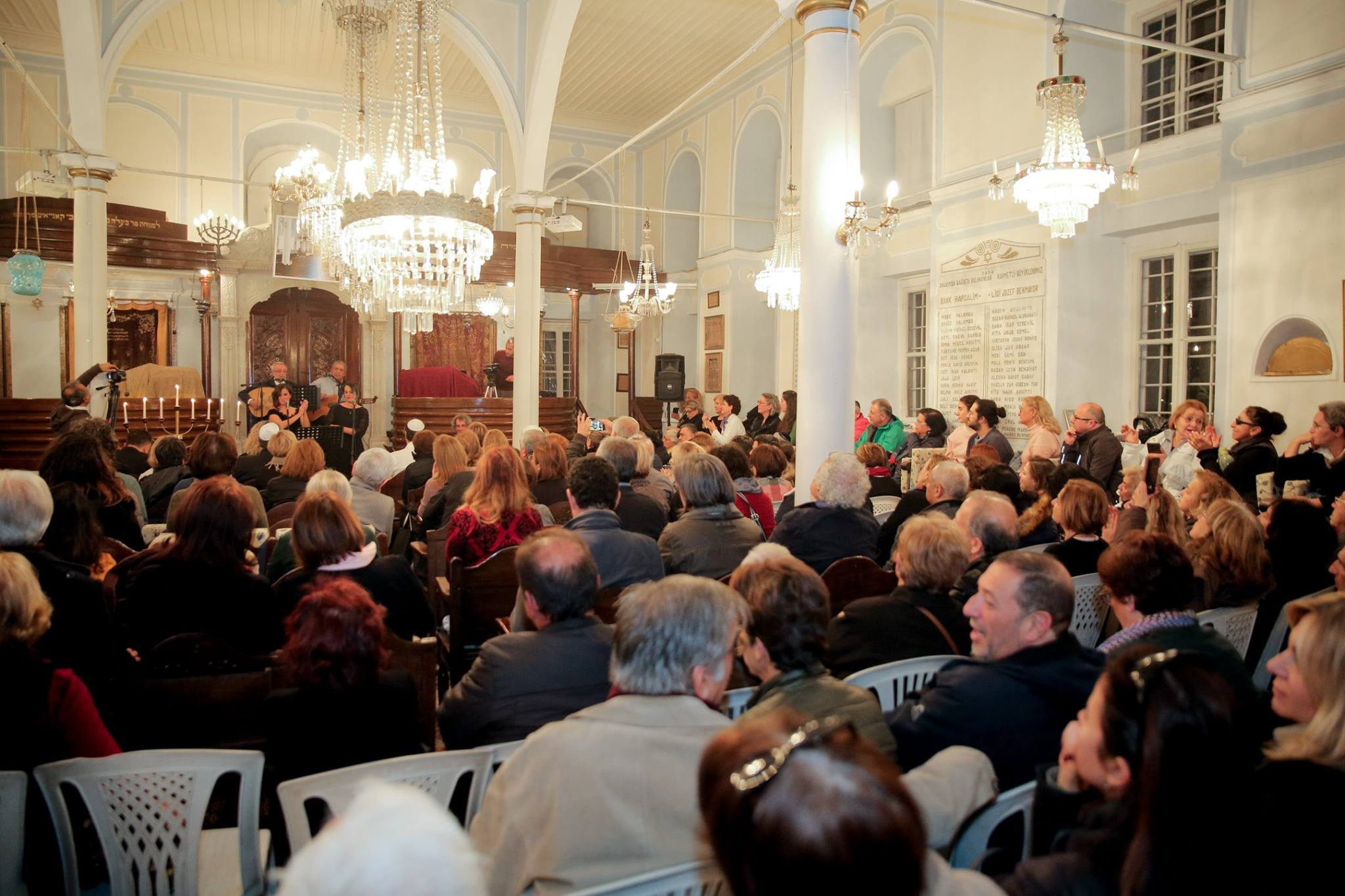
A festival has been created under the name of “Izmir Sephardic Culture Festival” to introduce the Jewish heritage of Izmir. The festival organized during Hanukkah holidays in 2018 and 2019, has received extraordinary attention and participation right away from the local citizens. It is planned to continue with wider participation, as soon as national and international pandemic regulations permit.
Giovanna Bossi Rosenfeld
I am Giovanna Bossi Rosenfeld, a licensed Tour Guide specialized in Jewish Tours of Florence.
Since 2006 I have led a team of Guides, each carefully selected for knowledge, enthusiasm, and a commitment to sharing the history and culture of Jewish and Renaissance Florence.
History, art and Judaism are my three passions at the foundation of my training, which led me to become a qualified tour guide specializing in tours in Florence and Tuscany with a Jewish perspective.
I was born and raised in Florence, where I got my University degree in Architecture. After significant experience as an architect specializing in ancient building restoration, I decided to follow my passion for art, history and Jewish life, culture, and history. First, I served as internal guide for the Synagogue and Jewish Museum of Florence. Then, in 1998, I was licensed as a Tour Guide of Florence, officially certified by the Regione Toscana.
From the start I focused on customized Jewish itineraries of Florence and Tuscany. I have studied Hebrew, I regularly visit Israel, I am currently collaborating with the Jewish Community of Florence and also have very good relationships with all Jewish Communities throughout Tuscany, including Livorno, Pisa, Siena and Pitigliano.
